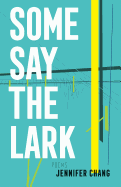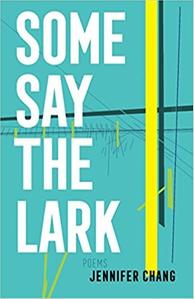
 Knowledge is an elusive phenomenon in Jennifer Chang's vivid and often profound poetry collection Some Say the Lark.
Knowledge is an elusive phenomenon in Jennifer Chang's vivid and often profound poetry collection Some Say the Lark.
Chang (The History of Anonymity) is an accomplished poet with a distinct voice whose work has appeared in Poetry, American Poetry Review and the Nation, among other places. In her second collection, she is at her inventive best. Divided into four sections, the book takes its title from a passage of William Shakespeare's Romeo and Juliet in which Juliet purposely calls the song of a lark that of a nightingale in order to prolong the amorous night and keep Romeo near.
So Chang plunges into the deceptions of love. Some Say the Lark is not so much about the pain of heartbreak as about love's unstable foundation and the existential crisis that instability precipitates. Matching the book's theme is a poetic style that is wild, unfettered and unpredictable, yet devastatingly precise in the emotions it dredges up. Chang is a poet who merges the abstract and the concrete with fierce, visceral energy. "My guts vast, impossible," she states in "There Are Too Many Other Birds to Write About."
In "Small Philosophies," one of the collection's best, Chang breaks up experience into "Phenomenology," "Logic" and "Epistemology." "You are a quality/ and a thing silenced/ by pine-shrug," the poet writes in the section of the poem devoted to phenomenology--a branch of philosophy concerned with human consciousness and self-awareness. Chang uses language to both engender and describe self-consciousness, highlighting the way the mind is constantly reframing experience. "A door/ falls out of the frame and you're more/ open than you'd like," the poet says in "Terra Incognita."
Chang's best poems are characterized by openness to pain, to language and the mysterious way it interacts with the wounded psyche. "It's work to gather the seasons,/ to ask a question that finds the feeling/ at the troubled core of thought," the poet states in "Lost Child." This poetic self-examination is hard work, but it leads to lines of sublime grace: "I rise/ to light. I am quiet/ and won't/ squander words/ to make what's/ false true." Offsetting Chang's quiet, reflective sequences are moments of wildness, of originality, of fresh vision breaking from the page: "God of steel girders. God of pigeon shit./ A feast of light/ crumbling at our feet."
In Some Say the Lark, language is a redemptive religion, fostering "the kinds of prayers/ that can't help themselves." In being open to the meanings of love and loss, Chang also exposes the reader to new perceptions and possibilities of being. --Scott Neuffer, writer, poet, editor of trampset
Shelf Talker: Acclaimed poet Jennifer Chang reconstructs selfhood from the ruins of love in this deep and affecting poetry collection.

